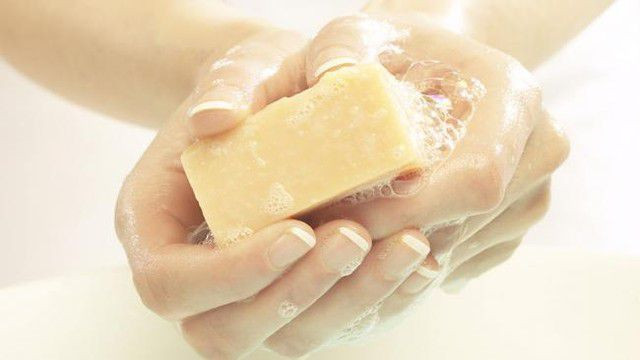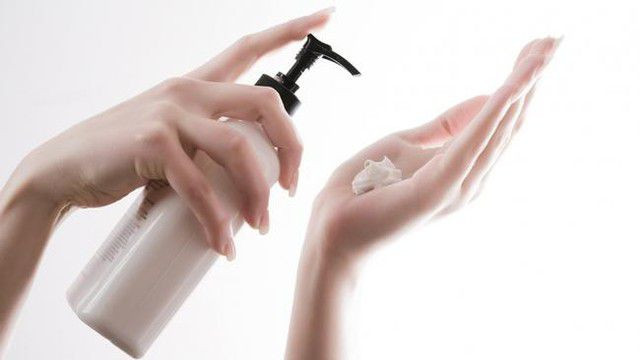Tips to protect your skin in the dry season
In winter, the weather becomes dry and cold, skin care becomes more necessary than ever for both men and women.
Unlike the hot summer and cool autumn, winter weather often brings unpleasant feelings, especially for the skin. The most obvious change in health in each person is the skin. If you work or work outdoors, winter is the number 1 destroyer of the skin. Due to cold wind, temperature, and low humidity in the air, human skin becomes dry, dehydrated, and more seriously, cracked, bleeding, and damaged. If you do not work outdoors much, just daily exposure to cold winter air can also affect your skin.
Dermatologist at Montefiore Medical Center, New York, USA - Mr. Karthik Krishnamurthy said, skin diseases often appear in winter such as eczema, dry skin, chapped lips can lead to skin infections if the chapping is severe. The reason is that when the weather is dry, water in the body is lost, making human skin drier than other seasons of the year. So how to protect your skin in winter, follow the instructions of American dermatologists.
Avoid using soap in winter
 |
Soaps are often strong antiseptics, so they strip away the natural oils that protect the skin from dehydration. If you use soap many times a day, it will gradually remove the natural protective layer of the skin, causing dry, cracked skin. If you have to use soap or detergents every day, buy mild detergents to protect your skin in the winter.
Medical experts recommend that you should only use soap to clean very dirty areas such as armpits, groin, arms and legs... when bathing, you should use shower gel.
Moisturize skin
 |
After bathing, you should use a moisturizer to prevent dry skin. You should use a cream containing ceramide while your skin is still damp. Because ceramide is a natural component in the stratum corneum, the outermost layer of the skin, it plays a major role in maintaining healthy skin and protecting the skin against aging, protecting the components underneath the skin such as collagen, elastin, moisture, etc.
Keeping your skin moisturized also helps you avoid itching. According to research from Brown University, normal skin secretes organic acids that help the skin become oily and elastic, preventing the invasion of bacteria and dirt. When it's cold, the skin doesn't sweat and organic acids make the skin dry, causing itching. Many people itch to the point of scratching their skin and bleeding, which is a weather-related itching disease. So to limit itchy skin, you need to provide enough moisture for the skin.
Don't take a bath in water that is too hot.
Bathing in water that is too hot will cause the skin to lose moisture and natural oils, making dry skin worse. Only use warm enough water and bathe for a short time. If you bathe for too long, the protective sebum layer of the skin will be lost, causing dry skin and rapid aging.
Wear protective gear
 |
In winter, in addition to clothes, we need to bring some items to protect the skin such as hats and scarves, gloves, socks to avoid contact with cold, dry environments for parts such as the face, hands, and feet. The skin in these areas will be easily damaged if not protected, such as chapped skin, dry lips, frostbite, or wrinkled hands...
Nutritional supplements
 |
Providing your body with foods that are good for your skin is never a bad idea, especially in the cold winter. Dr. Krishnamurthy said that vitamin B is very important for healthy skin, restoring dry skin, this vitamin is found in turkey, tuna, cereals, beans, bananas... Alcohol makes the body lose vitamin B, at the same time making the skin worse.
There are also some other vitamins that are very good for the skin such as vitamin C, so eating citrus fruits, peppers, tomatoes... is also very good. Vitamin C helps soften and brighten the skin, helps the body increase collagen production, making the skin smooth, elastic, anti-aging... Vitamin E is considered a "friend" of beautiful skin because it makes the skin more moist, youthful, anti-oxidant, reduces the formation of skin pigmentation... Vitamin E is abundant in soy products, cereals, nuts, sprouts...
Avoid the sun
The winter sun can also damage your skin. One thing many people don’t know is that the winter sun is more damaging than the summer sun because it’s windier in winter and there’s less sun coverage, so you need to use sunscreen if you go outside.
Moisturizes the skin
 |
If the dry winter weather does not provide moisture to your skin, then create your own moisture for your skin. A humidifier is a solution. Depending on the weather, the temperature inside and outside the room, set the appropriate level. If the temperature and humidity change suddenly, it will be more harmful to the skin, causing dry, chapped skin.
You should only bathe once a day in winter.
 |
The maximum bathing time for each time is 5-10 minutes in the bathtub or shower. Many people think that bathing will provide moisture to the skin. This is completely true if you take a cold shower, but in winter to protect our health we need to take a hot shower, so adjust the water temperature to be just humid enough. The hotter the water, the drier the skin.
Drink enough water
If you wear too many clothes, you will sweat, which is also one of the causes of dry skin. To limit this, you need to replenish your body with water to avoid dehydration in winter, when the weather is dry.
According to SKDS
| RELATED NEWS |
|---|





